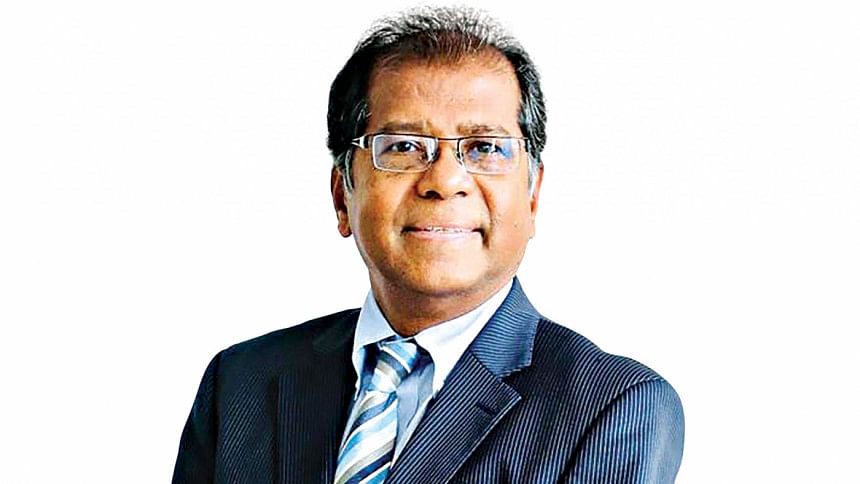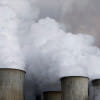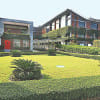“We aim for a significant national impact”

The Daily Star (TDS): Your institution has been recognized as one of the Top Banks and Financial Institutions in the 'Sustainability Rating 2022' by the Bangladesh Bank. What were the most innovative and impactful sustainable financing products or strategies you adopted to achieve this recognition?
Kanti Kumar Saha (KKS): Despite our relatively recent establishment in 2018 and the obstacles presented by the COVID pandemic in recent years, we express gratitude for the sustainability rating bestowed upon us by the central bank in 2022. Presently, our primary emphasis lies in making contributions to the national economy and tackling global climate-related concerns.
We have worked closely with the central bank, securing funds in advance for our projects due to our strong portfolio, which they have approved. We refer to our approach as "sustainable project financing" rather than "sustainable financing products." Since we do not have many branches, we have partnered with MFIs (Microfinance Institutions) that help us connect with farmers and small projects in rural areas. Even though we are not a large organization, we aim for a significant national impact.
Our first project involved e-financing from the central bank for a green brick manufacturing plant. The goal was to achieve zero carbon emissions, which we accomplished by switching from wood to gas as fuel, thus protecting the environment.
TDS: How does your institution assess the creditworthiness and risk associated with sustainable financing projects compared to traditional projects?
KKS: We prioritize thorough risk analysis and environmental benefits for our clients. We secured 15-year World Bank funding at slightly over 6% interest for an economic zone. Our focus extends beyond finance, emphasizing a positive social impact and ecological balance while mitigating risks. We also prioritize credit analysis and risk management, selecting clients through a forward selection process, and we aim to expand our sustainable and green financing.
Our corporate social responsibility budget supports climate awareness, education for elderly citizens, and intergenerational learning on sustainability and climate change.
TDS: How are you utilizing the Green Transformation Fund and the green refinancing programs that Bangladesh Bank offers?
KKS: This year, we entered into a significant agreement with the central bank, focusing our efforts on projects that benefit not only businesses but also the climate. One of these projects involves a state-of-the-art treatment plant for a large exporter, ensuring 100% reuse of drainage water. This approach directly reduces water waste and environmental impact.
Another project partners with an export-oriented industry that utilizes laser cutting machines, enhancing precision and efficiency while minimizing material waste. These machines are energy-efficient, contributing to a greener future by conserving electricity and reducing carbon emissions. Our commitment to such projects underscores our dedication to sustainability and climate protection.
Keep Reading -
- Sustainable finance for greener future
- Why sustainable Finance?
- We are committed to achieving net zero emissions - Mashrur Arefin
- Working diligently to introduce green bonds - Arif Quadri
- We aim for a significant national impact - Kanti Kumar Saha
- The future will be green - Humaira Azam
- The path to green projects: Borrowers' experiences and insights
- Sustainability leads to increased revenue - Mirza Elias Uddin Ahmed
- Sustainability is the ultimate future - Mosleh Uddin Ahmed
- Pro-people, pro-planet, and pro-society - Selim R. F. Hussain
TDS: What is your plan for future to guide your institution with this sustainable spirit?
KKS: We are actively moving towards establishing a dedicated finance team to arrange substantial, long-term funds for green financing, including World Bank funding. Our approach involves various strategies such as preferential rates and syndication to facilitate eco-friendly projects. The shared goal of the Central Bank of Bangladesh and the World Bank is to safeguard the environment through sustainable financing that protects the climate.
Our future plans include continued growth and self-education, with a strong emphasis on employee training. We aspire to make meaningful contributions not only to Bangladesh but also to the global environment
TDS: What do you expect from the government to make the banking sector more sustainable?
KKS: Increasing campaigns and awareness are crucial, especially within the domestic corporate sector, where many companies are not fully informed about sustainability. While export-oriented industries are more aware due to foreign audits, broader domestic awareness is needed. The government should lead awareness campaigns, extending sessions beyond the banking sector to consult with ministries like industry and commerce, collaborating with trade bodies to play a vital role in spreading awareness. Every entrepreneur should prioritize sustainability and ensure their projects do not harm the climate. Government and entrepreneurs must collaborate for this collective goal.
The interview was taken by Md Fozlay Rabby Ansary

 For all latest news, follow The Daily Star's Google News channel.
For all latest news, follow The Daily Star's Google News channel. 








Comments